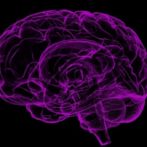Snapshots of Dementia: Desperately Seeking Diagnosis
Photo by Raman Oza from Pixabay In a previous episode of “As the Journey Toward Diagnosis Turns,” Tom’s most recent neurologist (No. 3, in case you’re counting) had requested two things to help her solidify Tom’s diagnosis: a PET scan of his brain and the records from the neuropsychologist. Insurance denied the PET scan, but the doctor wanted us to come in anyway. I fought the early-morning Orlando traffic only to discover that the neuropsychologist hadn’t accepted this most recent neurologist’s form, so he hadn’t sent the records. Instead, we had to fill out an additional request. As soon as we completed and signed it, our neurologist’s office faxed it back, believing Tom’s records would arrive soon. We waited. And waited. And ended up having to reschedule because the records still hadn’t arrived. In fact, the neuropsychologist’s office had stopped answering the phone when our neurologist’s office called. Throughout this season of my life, I have had some amazing and supportive medical personnel who have assisted us. But I have also experienced the frustration of dealing with a system that somehow works against rather than for the patient. Why should our health records not be our health records? Why should we have such a difficult time obtaining them to share with another health professional? Fast forward to a few weeks later, another denial of the PET scan by our insurance and another visit to the neurologist. This time, she had the results of the neuropsychological exam. I wasn’t convinced they would help her much, since that practitioner had told us Tom’s only issues were ADHD and shame associated with some of his poor choices. But of course, we were glad to have another appointment. This time, they did another preliminary memory test, and Tom again charmed the nurse’s assistant. I couldn’t tell if he remembered our previous visit or not, but after a brief physical exam and a few more questions, the neurologist explained her dilemma. After reviewing his records, she felt even more confident that he had frontotemporal degeneration, behavioral variant (and by now, I’d done enough reading to agree with her). But she hesitated to make a firm diagnosis without “proof” via a PET scan (I’ve since learned from other FTD spouses as well as medical reports that PET scans do not always provide such proof.) Since our insurance wouldn’t pay for it, we could either wait until Tom turned 65 and get it via Medicare (at that time, nearly two years away), pay for it ourselves (at approximately $5,000) or remain undiagnosed. It may not surprise you that, with my newfound advocacy for my husband, I chose the fourth door: Another neurologist. By this time, I...
Read More








